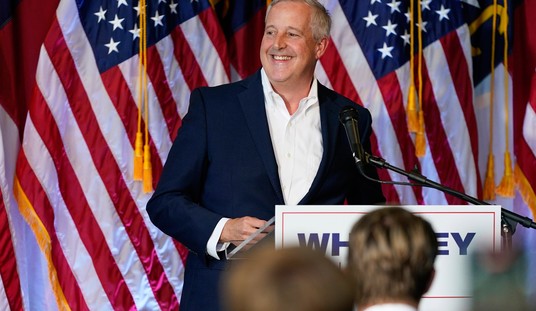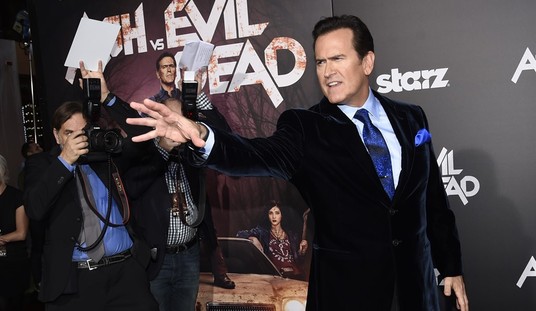Polling suggests that the vast majority of Americans feel that the nuclear deal the Obama Administration struck with Iran is a bad deal for the United States and will likely not keep Iran from getting a nuclear weapon. However, the American public isn’t the only one who’s noticed that Iran is likely to have nuclear weapons sooner rather than later – the Saudis have noticed, and their initial responses may be indicators that a war is brewing between Iran and the House of Saud.
It is widely accepted that Saudi Arabia’s execution of Nimr al-Nimr was a shot directly across the bow of Iran’s government, which had warned that they would punish the Saudis for any such action for years. It was also, as ForeignPolicy explains, a shot directly across the bow of the Obama administration, reminding them that proceeding with the Joint Comprehensive Plan of Action (JCPOA) with Iran will have destabilizing consequences for the entire region:
The Saudis knew that going ahead with the death sentence would provoke the Iranians and worry the Americans. So why did they choose this moment to do it? It was time to send a clear message to U.S. President Barack Obama’s administration that Riyadh is sufficiently antagonized by Washington that it no longer feels obligated to go along with American efforts to tiptoe around Iran.
The Saudis felt deeply betrayed by the back channel that the Obama administration opened with Iran in 2012 without their knowledge, and they clearly expressed their concerns about the nuclear agreement. Saudi Arabia’s then foreign minister, Saud al-Faisal,warned that Tehran should not get deals it didn’t deserve, while former intelligence official Turki al-Faisal said that the kingdom could start its own uranium-enrichment program if Iran’s program were legitimized.
Although Riyadh and its Persian Gulf allies eventually accepted the agreement in public, they made clear that they would be watching how the United States handled Iran’s aggressive behavior in the region. Before the nuclear deal was signed, one Gulf official told me that they were so worried about Iran’s asymmetric warfare in the region that he almost preferred that the Iranians be allowed a nuclear program so long as there were forceful U.S. actions to stop Iran’s meddling in Iraq, Bahrain, Syria, and Lebanon.
* * *
In recent weeks, Gulf countries grew increasingly alarmed by a series of events, including Washington’s muted reaction to Iran’s ballistic-missile testing. They were dismayed when Obama balked at imposing sanctions onIran for its missile program. In December, the head of a powerful Islamist Syrian rebel group, Zahran Alloush, was killed in an airstrike that rebels blamed on Russia. He was no moderate and no friend of the West, but he was a powerful rebel leader and his death was a blow to Syrian peace efforts. His group had joined a conference in Riyadh in December as the kingdom tried to organize the opposition ahead of planned talks with the Syrian government later this month.
In the eyes of Riyadh, Washington’s muted reaction to Alloush’s killing was worse than the strike itself. It was a sign that the United States is still not willing to tip the balance in favor of the Syrian opposition and the regional Sunni camp.
Read, as they say, the whole thing. Clearly, although the JCPOA is, in itself, a problem, it’s the Obama Administration’s feckless implementation of it that has caused the biggest problem in the region. In confrontation after confrontation, the Obama Administration has never understood the merits of sticking with a deadline just for the sake of proving that you will live up to your word.
It’s a pattern of behavior with the Obama Administration that doesn’t just inform their foreign policy choices. When the time came to implement the deadlines imposed by Obamacare, the Administration repeatedly balked at enforcing deadlines they themselves pushed to be included in the legislation. Again and again, whenever they heard the slightest complaining about the deadlines, they unilaterally pushed them back.
Whatever the merits of this approach when dealing with the United States business community, it is disastrous when dealing with a hostile foreign power. The Iranian government – and the Saudi government, for that matter – views “goodwill” as weakness, and with good reason. When the Obama administration refused to enforce the “red line” they drew in Syria, or sanctions for Iran’s pursuit of their ballistic missile program, they sent the clear message that just because the United States says they will react, does not mean that they actually will.
The inescapable conclusion the Saudis have drawn is that they have to take matters into their own hands, which could lead to disastrous consequences in the region. The Saudis know that Iran has been trying to destabilize their government for years, and may conclude that all out war is necessary to prevent Iran from developing nuclear weapons. If that happens, an already worsening situation in the Middle East could become disastrous.
I understand full well that the Saudi government is far from perfect. But the last 15 years have shown us that in this part of the world, we don’t really have the option of free, democratic governments that aggressively squash terrorists in their midst. The two options we have are governments that turn a blind eye to radical terrorists in order to maintain power (like the Saudis), or governments that actively fund and arm terrorists (like Iran).
Until a better solution comes along, the former is clearly better than the latter, and the Obama Administration’s failure to recognize this may have started a war.













Join the conversation as a VIP Member